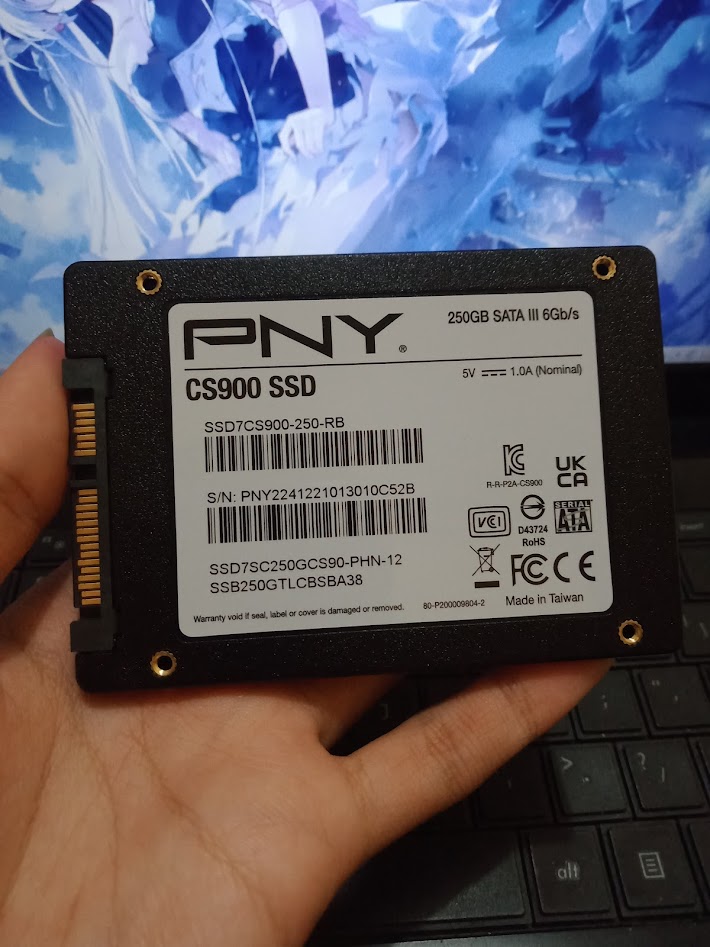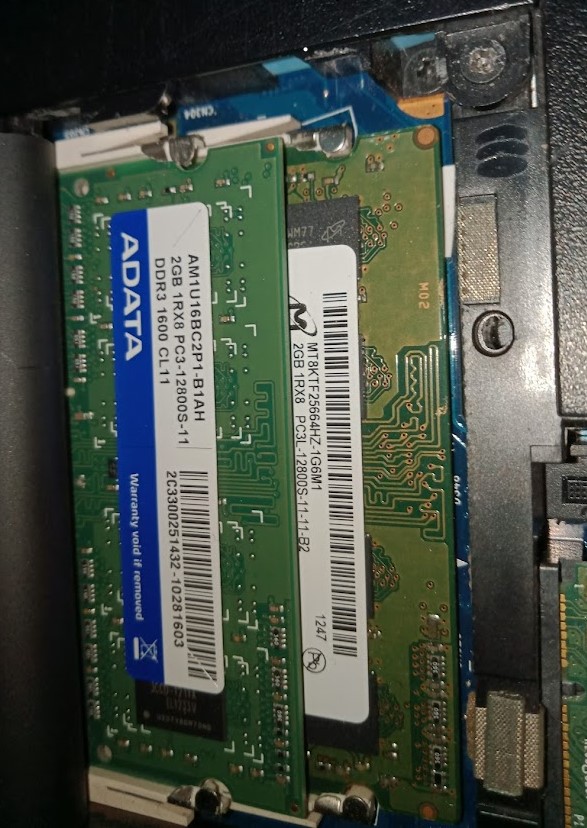Comparing: PNY CS900 250GB vs DDR3 SODIMM 1066MHz [Disk]
In this comparison, we analyze two Disks: PNY CS900 250GB and DDR3 SODIMM 1066MHz [Disk], using synthetic benchmark tests to evaluate their overall performance. This side-by-side comparison helps users understand which hardware delivers better value, speed, and efficiency based on standardized testing. Whether you're building a new system or upgrading an existing one, this benchmark-driven evaluation offers valuable insights to guide your decision.

PNY CS900 250GB
| Type: | Disks |
|---|---|
| Model: | PNY CS900 250GB |
| Capacity: | 250GB |
| Interface: | SATA-III 6Gbps |

DDR3 SODIMM 1066MHz [Disk]
| Type: | Disks |
|---|---|
| Model: | DDR3 SODIMM 1066MHz [Disk] |
| Capacity: | 2GB |
| Interface: | DDR3 |
Specification Comparison Table
| Specification | PNY CS900 250GB | DDR3 SODIMM 1066MHz [Disk] |
|---|---|---|
| Brand | PNY | - |
| Format | SSD 2.5 | RAM Disk |
| Capacity | 250GB | 2GB |
| Interface | SATA-III 6Gbps | DDR3 |
Submission Comparison Table
| Benchmark Software | PNY CS900 250GB | DDR3 SODIMM 1066MHz [Disk] |
|---|---|---|
| ATTO Disk Benchmark - 64M |
Read: 542.37 MB/s Write: 505.26 MB/s |
Read: 1020.00 MB/s Write: 1080.00 MB/s |
| Cross Platform Disk Test |
Read: 415.87 MB/s Write: 214.49 MB/s |
Read: 658.01 MB/s Write: 265.28 MB/s |
| CrystalDiskMark |
Read: 535.26 MB/s Write: 478.16 MB/s |
Read: 746.24 MB/s Write: 828.18 MB/s |
About Hardware PNY CS900 250GB
The PNY CS900 250GB is a 6Gbps SATA-based SSD, designed as an upgrade solution for users looking to increase system performance from HDD to SSD at an affordable price.
It offers read speeds of up to 535MB/s and write speeds of up to 500MB/s, providing significant improvements in boot times, application loading and file transfer speeds over traditional HDDs. With 3D NAND technology, the CS900 also offers better power efficiency.
Tuesday, 31 January 2023 05:42:07 | Update: 1 month ago
About Hardware DDR3 SODIMM 1066MHz [Disk]
DDR3 SODIMM 1066MHz is a DDR3 SODIMM RAM module with a speed of 1066MHz, typically used in laptops or other compact devices. In a standard system, this RAM serves as the main memory for running applications and the operating system.
However, in specialized use, this RAM is configured as a RAMDisk, which is a temporary storage that utilizes RAM capacity to significantly increase data access speed compared to SSDs or HDDs. This use of RAMDisk allows for temporary storage of temporary files, application caching, or data processing with very low latency. In this experiment, RAMDisks are used to store data and test read and write speeds.
Wednesday, 26 December 2012 14:27:32 | Update: 1 month ago
